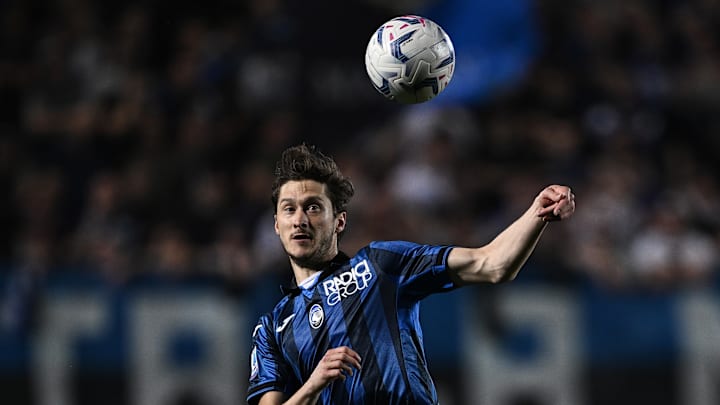Atlanta United is sitting pretty financially. I mean, let’s be real, how often does a Major League Soccer (MLS) club make history in the transfer market? Over $50 million. Yep, you read that right. Sounds like European club money, but that’s what Atlanta raked in by offloading three of its crown jewels: Thiago Almada, Caleb Wiley, and Giorgos Giakoumakis. But hey, not everything that glitters is gold. What looks like a dream window could easily turn into a poorly disguised nightmare.
These sales put Atlanta United on a pedestal no MLS club has ever reached before, but they also raise some serious questions about the team's future. Sure, money can buy you a lot of talent, but can it buy championships? Or worse, is it selling the club’s soul?
Follow MLS Multiplex on X (Twitter).
There’s no denying Atlanta played their cards right on paper. Thiago Almada, the Argentine star now lighting it up for Botafogo, was the player fans couldn't get enough of. He had that magic in his feet, the kind of rare talent you don't see every day. Caleb Wiley, the hometown kid now heading to Chelsea, was a symbol of Atlanta’s special touch with developing young talent. And Giorgos Giakoumakis, the Greek striker now suiting up for Cruz Azul, was the goal machine who brought fans some unforgettable moments.
But what do these sales mean for Atlanta United? Some might say the club is reinventing itself, gearing up for a new era with pockets full of cash. But, let’s be honest here, what really makes a club great is continuity, a strong foundation, and an identity that’s built over time. When you sell your best players, it’s like you’re saying, “We’re ready to start all over again.”
Atlanta tried to fill the gaps by bringing in Alexey Miranchuk from Atalanta as a Designated Player, that big-name “heavy hitter” who’s supposed to patch things up. Miranchuk’s got talent, no doubt, and he might bring a touch of European flair to the midfield. But, seriously, is he really going to replace Almada? Or is he just a temporary bandage on an open wound?
And then there’s the arrival of Pedro Amador on a free transfer, which left plenty of fans scratching their heads. Sure, adding depth is always a good idea, but does this guy have what it takes to make a real impact? Or is he just another number on the payroll?
Now, let’s talk about one of Atlanta United’s biggest lingering problems: a lack of squad depth. The stars are gone, the replacements are in, but the team is still relying too much on a handful of names. If injuries come knocking, the team could be in real trouble. This lack of depth could be deadly in the race for the title. It’s not enough to have a solid starting 11; you need options on the bench that can change the game when it matters most.
Atlanta fans have plenty of reasons to be excited about the millions that rolled in, but they also have plenty of reasons to be worried. Money gives you freedom, sure, but it also brings pressure. The club now has the responsibility to use that cash wisely. The moves they make in the upcoming transfer windows could shape the future of the team for years to come.
Signing players is one thing, but building a solid project, with a clear identity and a coach who’s up to the task, is a whole different ballgame. The team needs someone who knows how to use these new resources and turn that potential into success on the field. The next few months will be crucial for Atlanta United. They have the chance to make history in MLS, not just because of the jaw-dropping sums they’ve banked, but because of what they can build with it. If Atlanta doesn’t rebuild their squad smartly and efficiently, they could become just another one of those clubs remembered for missed opportunities.
Atlanta's financial flexibility heading into 2025 could be a game-changer, as long as the club doesn’t lose its way. The fans want trophies, sure, but they also want to feel like the team is still theirs, still carrying that essence that made Atlanta United a phenomenon in MLS. If the leadership can strike that balance, the future could be bright. If not, we might just be watching the story of a club that sold its soul for gold but ended up empty-handed.
